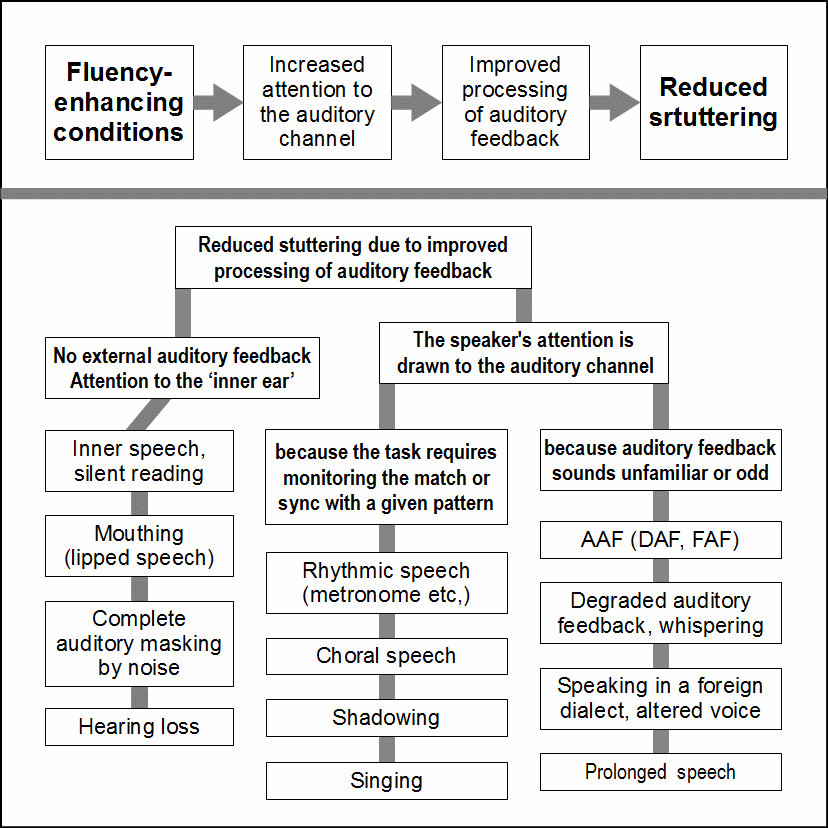It has been known for a long time that many people who stutter are immediately fluent in certain conditions, for instance, when they speak in unison with others, in sync with the clicking of a metronome, or when they hear themselves speak in an altered manner. To understand why stuttering is reduced or even eliminated in such conditions is desirable because it may help understand why stuttering occurs in normal speaking conditions. However, empirical findings in this area appear conflicting and confusing, especially with regard to the role of auditory feedback. The article gives an overview of the variety and diversity of fluency-enhancing conditions and of theories proposed to explain their effect. These theories are evaluated in the light of recent empirical findings. A new hypothesis is proposed, based on findings showing that speech processing is limited without attention to the auditory channel. It is assumed that fluency-enhancing conditions draw the speaker’s attention to the auditory channel and, thereby, improve the processing of auditory feedback and its use in speech control. Implications of this account for a causal theory of stuttering and for the treatment of the disorder are discussed.

